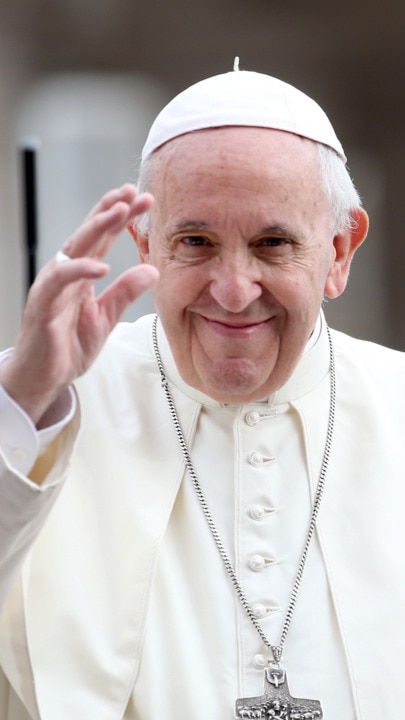Who was the man behind the name Pope Francis? The world met Jorge Mario Bergoglio in 2013 when he became the first pope from the Americas and the Jesuit Order. A bold statement emerged with his election: this leader would not only represent over one-sixth of the global population but also bring a new perspective to the papacy. His choice of name, Francis, symbolized humility and service, drawing inspiration from St. Francis of Assisi.
Born on December 17, 1936, in Buenos Aires, Argentina, Jorge Mario Bergoglio's journey to becoming Pope Francis was anything but ordinary. Before entering the priesthood, he worked as a chemical technician, an unusual background for someone destined to lead the Catholic Church. In 1958, he joined the Society of Jesus, commonly known as the Jesuits, marking the beginning of his spiritual ascent. By the time of his election in 2013, Bergoglio had already served as the Archbishop of Buenos Aires and earned a reputation for his commitment to social justice and simplicity in lifestyle.
| Biographical Information | Details |
|---|---|
| Full Name | Jorge Mario Bergoglio |
| Date of Birth | December 17, 1936 |
| Place of Birth | Buenos Aires, Argentina |
| Papal Name | Pope Francis |
| Elected as Pope | March 13, 2013 |
| Profession | Pope of the Roman Catholic Church |
| Ordination Date | December 13, 1969 |
| Consecration Date | June 27, 1992 |
| Official Website | Vatican Official Website |
Pope Francis' tenure was marked by significant reforms within the Catholic Church. One of his most notable contributions was the issuance of the encyclical Laudato si' in 2015, which addressed environmental issues and called for urgent action against climate change. This document resonated globally, emphasizing humanity’s responsibility towards creation. It highlighted what he termed a “real and dire anthropological crisis,” urging collective efforts to combat ecological degradation.
The pontiff consistently advocated for marginalized communities worldwide. Under his leadership, the Vatican engaged more actively in interfaith dialogues, promoting unity among different religious groups. Pope Francis frequently spoke out against economic inequality, corruption, and human rights violations, positioning himself as a voice for the voiceless. His approachable demeanor and willingness to engage directly with people endeared him to millions across diverse cultures and faiths.
In addition to these public-facing initiatives, internally, Pope Francis implemented structural changes aimed at enhancing transparency and accountability within the Vatican administration. He established new committees tasked with reviewing financial practices and improving governance standards. These moves were part of broader efforts to modernize operations while preserving core values upheld by centuries-old traditions.
Despite facing criticism from conservative factions within the church who opposed some of his progressive stances, Pope Francis remained steadfast in pursuing reformist policies designed to make Catholicism more inclusive and relevant in contemporary society. His emphasis on mercy over judgment, compassion over rigidity, set him apart from predecessors whose approaches might have been perceived as more doctrinaire.
Pope Francis' legacy extends beyond institutional reforms; it includes fostering dialogue between science and religion through platforms like the Vatican Observatory. Such endeavors underscored his belief that faith could coexist harmoniously alongside scientific discovery—a message particularly pertinent given increasing secularization trends observed globally.
As the first pope from Latin America, Pope Francis bridged geographical divides within Christianity itself, symbolizing hope for many Catholics living outside Europe where historically most popes originated. His humble beginnings—having grown up in Argentina during economically challenging times—and continued preference for modest living arrangements further reinforced perceptions of authenticity and relatability.
Throughout his papacy, Pope Francis maintained focus on key themes such as care for our common home, solidarity with suffering populations, and openness toward those traditionally excluded by societal norms or ecclesiastical hierarchies. These priorities shaped both his pastoral teachings and administrative decisions, leaving an indelible mark on the future trajectory of the Roman Catholic Church.
Even after stepping down or passing away, the impact of Pope Francis' leadership will continue influencing generations to come. His vision of a Church reaching outwards rather than inwardly focused offers guidance for addressing complex challenges facing humanity today—from poverty alleviation to sustainable development goals—all rooted in principles of love, justice, and peace inspired by Christ's teachings.
Ultimately, whether remembered primarily for transformative reforms initiated during his term or enduring messages conveyed throughout his ministry, Pope Francis stands tall among historical figures associated with the papacy—not merely because of achievements attained but due to profound influence exerted upon hearts and minds worldwide seeking meaning amidst modern complexities.



